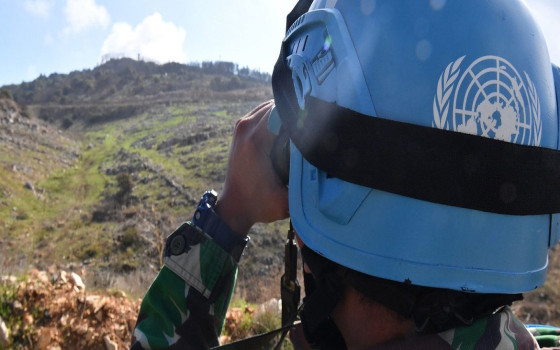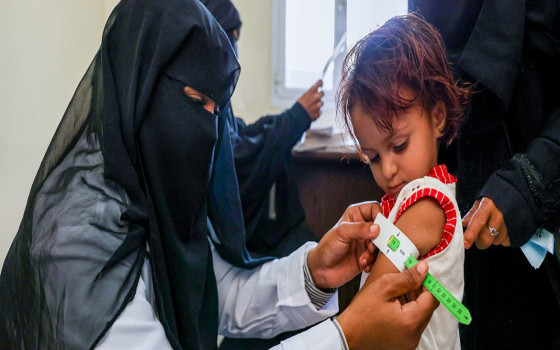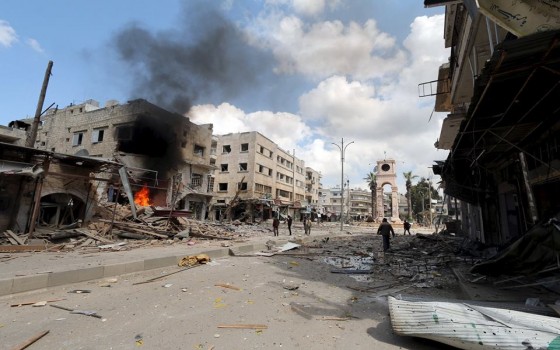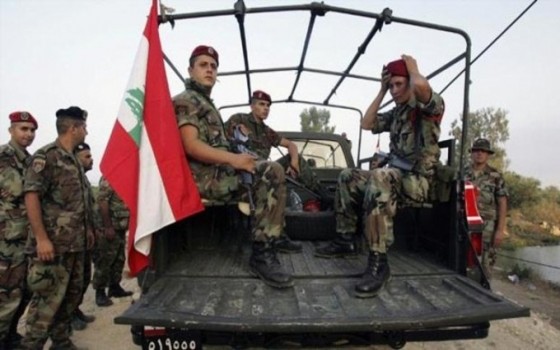تقارير الامم المتحدة تحذر من : الافعال احادية الجانب في ليبيا وأزمة المستقبل في اليمن و"صدمات نفسية" و"تدمير لسبل العيش"، في لبنان

- Europe and Arabs
- الأربعاء , 21 أغسطس 2024 9:54 ص GMT
نيويورك ـ عواصم : اوروبا والعرب
قالت ستيفاني خوري القائمة بأعمال رئيس بعثة الأمم المتحدة للدعم في ليبيا (أونسميل)، إن الأفعال أحادية الجانب من قبل الجهات السياسية والعسكرية والأمنية الليبية تؤدي إلى زيادة التوتر وترسيخ الانقسامات المؤسسية والسياسية وتعقيد الجهود الرامية إلى التوصل إلى حل سياسي تفاوضي. بحسب ماجاء في نشرة اخبار الامم المتحدة التي تلقينا نسخة منها صباح اليوم الاربعاء
وفي إحاطتها عبر الفيديو أمام جلسة عقدها مجلس الأمن امس الثلاثاء بشأن الوضع في ليبيا، نبهت خوري إلى أنه "على مدى الشهرين الماضيين، تدهور الوضع في ليبيا بسرعة كبيرة من حيث الاستقرار السياسي والاقتصادي والأمني".
وأشارت إلى عدد من التطورات الأمنية في البلاد بما فيها اندلاع اشتباكات مسلحة عنيفة في تاجوراء، شرقي طرابلس، في 9 آب/أغسطس بين مجموعتين مسلحتين مما أسفر عن سقوط قتلى وجرحى في صفوف المدنيين وتدمير الممتلكات، وتحرك الجيش الوطني الليبي من جانب واحد نحو الأجزاء الجنوبية الغربية من ليبيا مما دفع القوات والجماعات في غرب البلاد إلى التعبئة وتأكيد استعدادها للرد على أي هجوم.
وشددت على أن الإجراءات أحادية الجانب من قِبل الشخصيات السياسية والأمنية تقوض الاستقرار، مضيفة أن "المحاولات أحادية الجانب لإقالة محافظ البنك المركزي تقابل بمحاولات معاكسة لإبقائه. كما تقابل محاولات إقالة رئيس الوزراء عبد الحميد الدبيبة وحكومته بمحاولات لإبقائه".
تدابير لبناء الثقة
وقالت نائبة الممثل الخاص للأمين العام في ليبيا إن البعثة الأممية كررت التأكيد لجميع القادة السياسيين والمؤسسات على التزاماتهم وتعهداتهم بموجب الاتفاق السياسي الليبي وتعديلاته، بما يتماشى مع جميع قرارات مجلس الأمن ذات الصلة، وخاصة القرار 2702 لعام 2023.
وأشارت كذلك إلى أن الإجراءات أحادية الجانب في المجال الاقتصادي تشكل أيضا محركا لعدم الاستقرار، مضيفة أنه بعد أشهر من الجهود الرامية إلى وضع ميزانية موحدة بمشاركة ممثلين من الشرق والغرب، اعتمد مجلس النواب في 10 تموز/يوليو مخصصا إضافيا للميزانية قدمته الحكومة المعينة من جانب واحد من قبل مجلس النواب.
وأفادت خوري بأن البعثة المعروفة باسم أونسميل تعمل على المساعدة في تسهيل خفض التصعيد بشكل عام وتقترح محادثات لتطوير مجموعة من تدابير بناء الثقة بين جميع الأطراف لإنهاء الإجراءات أحادية الجانب وخلق بيئة أكثر ملاءمة لاستئناف العملية السياسية.
وأضافت: "سيتطلب المضي قدما في نجاح العملية السياسية جهودا لحسن النية من جانب القادة والجهات الفاعلة السياسية والأمنية، وجمهورا أوسع نطاقا منخرطا، ونهجا منسقا لدعم المحادثات الليبية من قبل المجتمع الدولي".
وفي دولة اخرى حذر بيتر هوكينز ممثل منظمة الأمم المتحدة للطفولة (اليونيسف) في اليمن، من تفاقم أزمة سوء التغذية بين الأطفال، خاصة مع استمرار النزاع والانهيار الاقتصادي، مشيرا إلى أن معدلات سوء التغذية الحاد تجاوزت 30% في بعض المناطق، في حين يعاني 48% من الأطفال من التقزم، مما يعيق نموهم البدني والمعرفي. وحذر مما وصفها "بأزمة المستقبل" التي قال إنها تهدد اليمن.
وأوضح هوكينز- في حوار مع أخبار الأمم المتحدة - أن اليونيسف تعمل على توفير المساعدات الإنسانية العاجلة، مثل الغذاء والمياه النظيفة، للأطفال والأسر المتضررة، خاصة في المناطق التي شهدت فيضانات مدمرة مؤخرا. كما أشار إلى جهود اليونيسف في مكافحة الأمراض وتوفير اللقاحات، بالإضافة إلى دعم التعليم وإعادة تأهيل المدارس المتضررة.
وشدد هوكينز على أن الحل الجذري يكمن في تحقيق السلام والاستقرار في اليمن، وتمكين الأطفال من الوصول إلى التعليم والخدمات الأساسية الأخرى. ودعا المجتمع الدولي إلى تكثيف الاستثمار في الاستجابة الإنسانية والعمل على إنهاء النزاع.
وعن لبنان قال المنسق المقيم للأمم المتحدة ومنسق الشؤون الإنسانية في لبنان، عمران ريزا إن حربا شاملة في لبنان ستكون مدمرة، مشددا على أن هناك حاجة ماسة لنجاح الجهود السياسية والدبلوماسية لتخفيف حدة التوترات.
وفي حديثه للصحفيين في مقر الأمم المتحدة في نيويورك عبر الفيديو من لبنان، نبه المسؤول الأممي إلى أن الوضع في لبنان تغير "بطريقة سلبية للغاية" منذ أن قدم إفادة مماثلة للصحفيين في تشرين الأول/أكتوبر 2023. وقال ريزا إن التوترات بلغت ذروتها على مدار الأسابيع الثلاثة الماضية، مشددا على الحاجة الماسة لخفض التصعيد.
وأفاد بأنه على مدى عشرة أشهر، نزح ما يقرب من 200,000 شخص بسبب تبادل إطلاق النار عبر الخط الأزرق الفاصل بين لبنان وإسرائيل، بمن فيهم أكثر من 110,000 في لبنان، وأن ما يقرب من 150,000 شخص لا يزالون على بعد عشرة كيلومترات من الخط الأزرق في مناطق جنوب لبنان التي تتأثر يوميا بالقصف والغارات الجوية.
وأشار كذلك إلى أن ما لا يقل عن 130 مدنيا قتلوا في لبنان بمن فيهم 10 سوريين الأسبوع الماضي، فضلا عن 21 مسعفا وثلاثة صحفيين على الأقل.














لا يوجد تعليقات